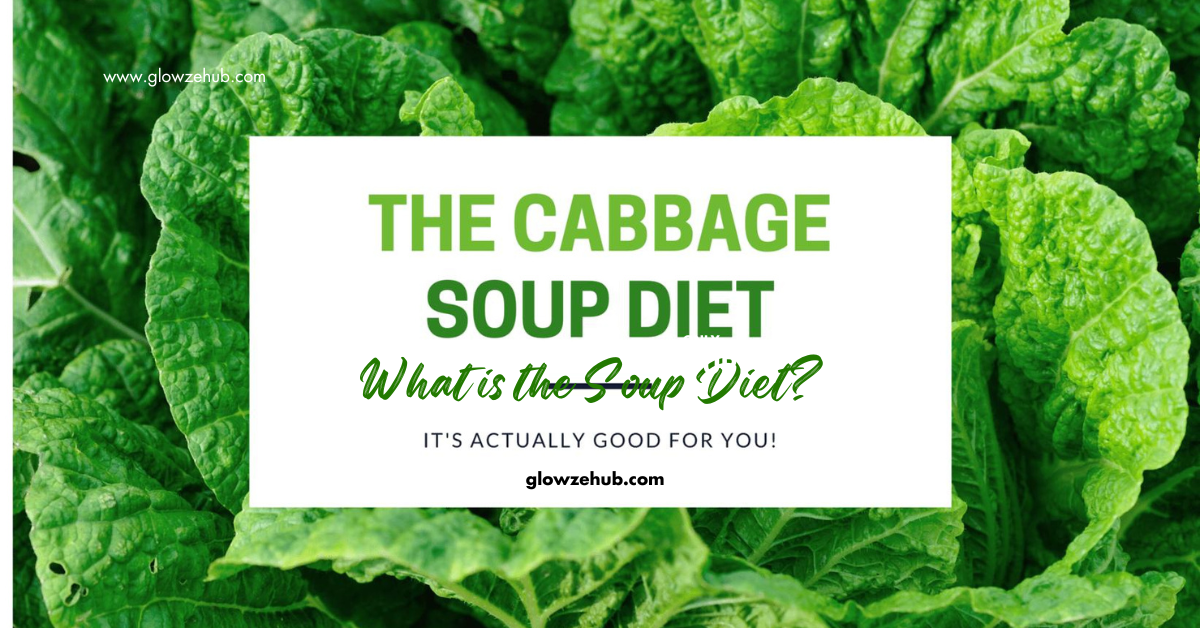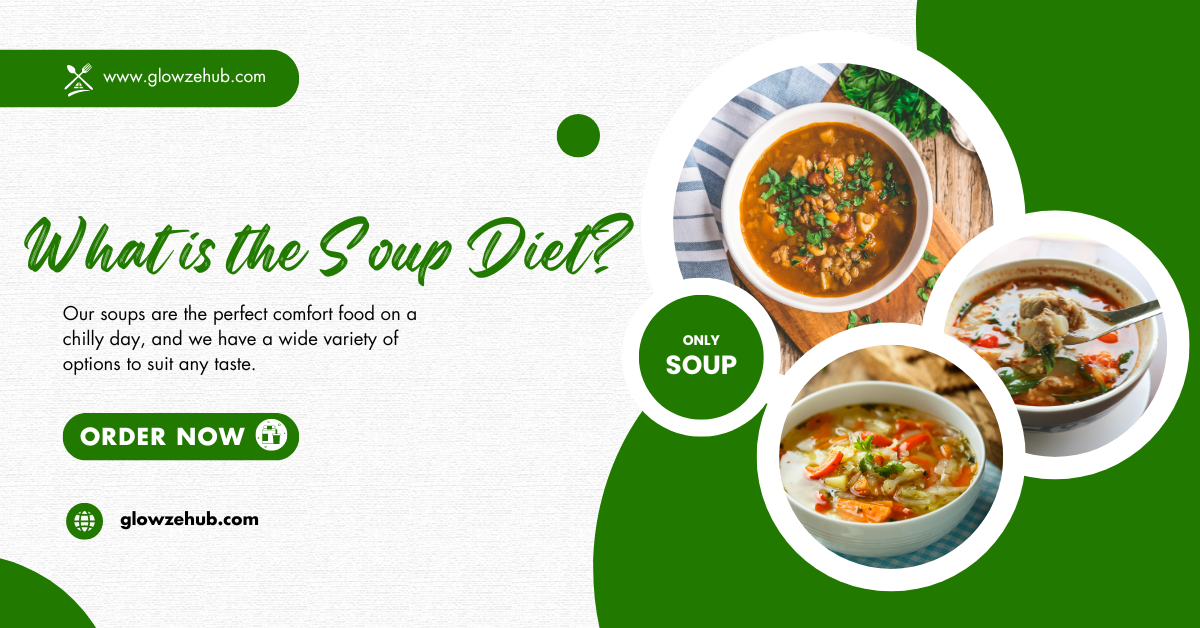What is the Soup Diet? At Very well, we believe that there is no one-size-fits-all solution to living a healthy lifestyle. Successful eating programs need to be personalized and consider the full person. Before starting a new diet, see your doctor or a certified dietician, especially if you have an underlying health problem.
What is the Soup Diet?
The soup diet is a set of soup-based meal plans that promise significant weight loss in a short amount of time (usually 5 to 10 days).Some of these diets centre mostly on soup, while others make soup the foundation of the diet, weight loss cabbage soup recipe with additional items added.
Eating soup may promote satiety and keep you full, allowing you to eat less overall.1 While this may lead to weight loss, there is no evidence that a soup-only diet could effectively support long-term weight management.
What Experts Say:
“The idea of eating soup to lose obesity has been lying around for decades, but physicians warn that a soup-only diet is low in nutrients and unsustainable.
However, they agree that eating vegetable-packed soups for some meals can be beneficial because they are full, nutrient-dense, and low in calories.
What You Can Eat
The cabbage soup diet has several variations. Each includes certain foods that are promoted and foods that are restricted or prohibited. Although each strategy is distinct, there are some commonalities among them.
Broths and Soup
Most soup diets require you to make soup with clear broth.
Chicken broth
Beef broth
Vegetable broth
Fish stock
Various soups, depending on the diet.
Vegetables
The soup diets that follow a low-carb eating plan include vegetables with a lower glycemic index (GI).
Turnips
Cauliflower
Collard greens
Kale
Spinach
Green beans
Celery
What you cannot eat
Soup diets are often quite restrictive, with only a few compatible items and a huge list of things to avoid while on the diet.
Dairy
Few soup plans allow people to consume dairy.
Coffee cream
Milk
Cheese
Sour Cream
Yogurt
Processed food and refined grains
Crackers
Cereal
Cookies
Candy
Baked foods
Chips
Fruit
Apples
Grapes
Berries
Melons
Citrus
Grains
Rice
Bread
Muesli
Pasta
Crackers
Cereal
The soup diet may be effective for certain people, but health professionals only suggest it for a short period due to its restricted nature.
Soup Diet: Tips and Techniques
Several diets require you to have soup with each meal, including breakfast. Others allow you to eat one non-soup meal per day as well as two soup-only meals. Most meal plans do not require a precise timing for ingestion. Some (but not all) of the diets restrict or completely forbid snacking.
The soup diets listed below are well-known. However, they are not necessarily healthy or effective weight-loss strategies. Certain aspects of these regimens, such as drinking more water or including soup dishes in a balanced meal, can be incorporated into a healthy lifestyle.
Basic Soup Diet
The basic soup diet allows for any variety of soup. Canned and handmade soups are also available. Soups with meat are typically encouraged, as are plant-based soups. Other plans may include a specific recipe and full directions.
Most plans last seven days, but others might run up to two weeks.
Cabbage Soup Diet
This seven-day eating plan needs you to create a huge batch of soup with cabbage as the main ingredient, but you may also add tomato, onion, carrots, and either chicken or veggie broth.

The cabbage soup diet also includes a list of foods that can and cannot be eaten. Most diets enable you to eat steak and skim milk while excluding things like bananas.
Sacred Heart Diet
On the Sacred Heart diet, devotees eat soup made from beef or chicken broth, green beans, celery, tomatoes, onions, and carrots. In addition to the soup, specific amounts of unsweetened fruit juice and brown rice are consumed. Potatoes and tomatoes, for example, can only be consumed in limited quantities on specific days.
When this diet first gained popularity, supporters said it was linked to a medical clinic called Sacred Heart. However, those claims have never been substantiated. According to diet supporters, if you follow the plan correctly, you can lose 10 to 17 pounds in seven days. However, health professionals caution that sudden weight reduction of this size is possibly harmful.
Bean Soup Diet
On the bean soup diet, devotees eat vegetable bean soup cooked with mushrooms, chilli peppers, diced tomatoes, pinto beans, bell peppers, and celery. This soup recipe is more difficult than others.
People who follow this program are encouraged to eat bean soup twice a day for their primary meals. Followers are advised to consume plenty of water. The diet advises people to avoid or limit dried fruit, nuts, seeds, and avocados but encourages them to eat the majority of oil-free, plant-based meals.
Keto Soup Diet
The keto soup diet is popular among those that follow the ketogenic diet, a paleo diet, or a low-carb eating regimen. The diet lasts five days and allows for a daily consumption of 1,200 to 1,400 calories and up to 20 grammes of carbohydrates. Certain foods, such as nuts and dairy, are prohibited.
The soup has bacon, olive oil, sun-dried tomato slices, red wine, squash, and and green beans. Some substitutes are permitted. However, individuals adhering to the regimen are encouraged to avoid certain veggies like kale since they may “impede weight loss.” This claim is not backed by science. Kale is a nutrient-dense vegetable, which means it has a lot of nutrients (such vitamins and minerals) yet little calories.
One key disadvantage of many soup-based weight loss regimens is that they do not include physical activity guidelines or a plan for shifting to a long-term healthy eating routine.
Pros of Soup Diets
Particularly, if you adopt a soup diet to stimulate more plant-based, nutrient-dense meals, it may bring some benefits.
May boost vegetable intake: If you don’t eat vegetables on a daily basis, a soup diet may help you consume more nutrient-dense vegetables. According to general guidelines, adults should take at least five servings of vegetables every day. Soup might be a good method to enhance your intake.
May reduce heart disease risk: Studies have indicated that plant-based eating may help reduce the risk of heart disease and other health concerns.
Remember that a 7- to 10-day plant-based eating plan is unlikely to reduce your risk of disease in the long run significantly. However, it could teach you how to consume more vegetables.
May promote weight loss: While evidence for soup-based diets is limited, some research suggests that eating soup as part of a regular diet may have some health benefits, such as weight loss. In 2011, a study found that soup consumption was connected with a lower body mass index (BMI) and a smaller waist circumference.3 However, the study was constrained in that it only included 103 men from Japan.
Cons of Soup Diets
Typical soup diets are fad diets with little scientific backing. They may pose health risks and other downsides.
Experts agree that eating only soup would eliminate otherwise healthy food groups like fruits and grains, resulting in nutrient deficiencies and imbalances.
Highly restrictive: According to some studies, restricting specific foods might lead to an unhealthy relationship with eating.
Not sustainable: The main issue with adopting a soup diet is that it needs to be more sustainable. These diets are not intended to be long-term. The majority of the programs endure 10 days or less. You can lose a significant amount of weight in a short period, but it will most likely be from water loss rather than fat loss.
- High salt diets have been linked to health hazards such as high blood pressure.
- Why You Might Be Gaining Weight After Workouts
Is Soup a Healthy Diet for You?
The soup diet is comparable to other diets that focus on specific food groups (known as mono diets). There are pizza diets, blender diets, juice cleanses, and even taco diets. Almost all of these diets promise significant short-term weight loss, but they are typically not sustainable.
A healthy, balanced diet should include a variety of fruits, vegetables, protein, grains, and good fats such as nuts and seeds, according to the United States Department of Agriculture’s dietary guidelines.
On the soup diet, you can eat from all of the recommended food groups, and your vegetable intake will most certainly increase.
Depending on the recipes you use, you may increase your intake of plant-based protein. Soup diet proponents frequently encourage cooking with healthy fats like olive oil. However, few soup diet regimens promote the eating of whole grains (or any grains at all). Most soup diets also limit fruit consumption.
The USDA suggests taking an average of 1,500 calories per day for weight loss, although this figure may vary depending on your lifestyle, gender, current weight, and amount of physical activity. Unlike other quick weight loss regimens, a soup diet may allow you to consume adequate calories; nonetheless, some soup programs recommend 1,200 to 1,400 calories each day.
For some women aiming to reduce weight, it may be a reasonable calorie target. Check with your doctor or nutritionist to find the appropriate calorie target that is best for you, and make sure that you’re meeting it. You can also use this calculator tool to determine your daily calorie requirements.
